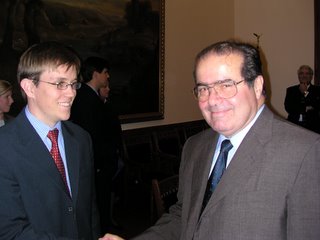The other day I tried an odd little site, recommended on Waterbones, that claims the ability to tell one what sort of music one likes. Apparently the designers have undertaken to classify all (or at least popular) music by a finite number of qualities that a cut possesses, and to recommend music to a listener based on the qualities, independent of artist or genre, exhibited by a seed recording chosen by him. One can give it input along the way by approving or rejecting particular cuts it plays. I found it entertaining, though more for its failures than its successes.
The context in which the device actually contrived to play mucic I liked was when my seed artist or cut belonged to a fairly distinctive genre. I entered, for example, Desmond Dekker, and the thing played, surprise surprise, a stream of rocksteady, which I know I generally like. But whenever it tried to branch out at all, usually by emphasizing the "reggae feel" quality at the expense of others, it came up with a bunch of Bob Marley drivel. Likewise, in the realm of country music, "pop a top" by Jim Ed Brown generally brought up decent old songs by Conway Twitty and such like, but I continually had to admonish the program when it played vile modern C & W, which it seemed incapable of distinguishing from good old honky-tonk. More nebulous genres left the algorithm at an utter loss. Tom Waits's "Heart of Saturday Night" conjured up a procession of unspeakably fatuous singer-songwriter types.
There are several obvious reasons, I think, why any system of classicfication intended to define the things any given person likes about music is desined for failure. The first is of course that there are simply too many things a person might like or dislike in a song for any mortal to compile. Indeed, I believe the qualities I enjoy in rocksteady--vigorous High-Life-like dance beats and certain chord progressions--are quite incidental to whatever characteristics Pandora ascribes to it, which is why any departure from the genre deprives it of its appeal. Indeed, some of the criteria are too coarse for obvious reasons. At some point the program decided I liked the use of "slide/pedal steel guitar," which is half true and half decidedly untrue. I am very fond of the articulate pedal steel lines in old honky-tonk, but I am incensed by the self-consciously-hillbilly dobro used in most modern country music. Second, of course, a lot of music's characteristics are at least partially subjective. The compilers of the "Music Genome Project" couldn't well identify songs as having an "obnoxious vocalist," "vacuous lyrics" or "annoying overproduction," though these were all major factors in my rejection of most songs. Third, there are reasons for liking or disliking something as emotionally-associated as music which have nothing whatsoever to do with the music itself. No program could be expected to know, for example, that I don't really like to listen to Gordon Bok because my mother used one of his albums to put me to sleep for years, and I've grown weary of his voice.
So if your musical tastes incline toward some fairly obvious criteria (like a "busy brass section," or "ska roots") you may well get some good ideas from the site; otherwise you can just use it to reassure yourself of your superiority to haphazardly-concocted internet amusements.
Postscript: The one quality shared by most of the music I liked, in case anyone was wondering, is apparently "mild rythmic syncopation," which I take to mean that it has a certain danceability--hence, perhaps, rocksteady and honky-tonk, but not reggae or country. Moreover, I don't mean to say that I've discovered nothing of interest on the site: I ran across, for example, an entertaining Buck Owens cover of "Save the Last Dance."
